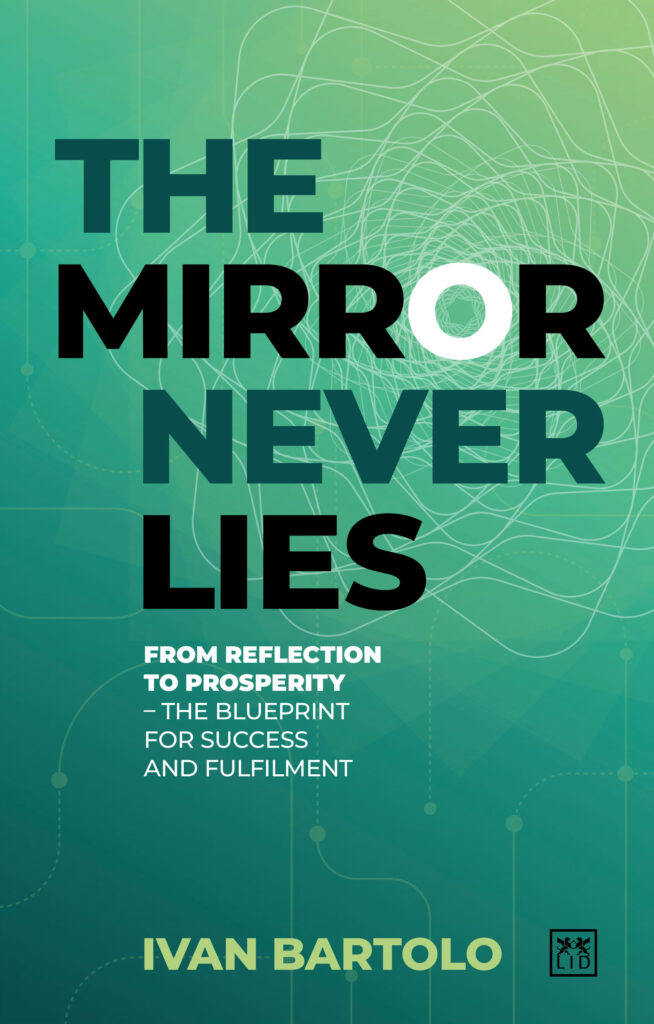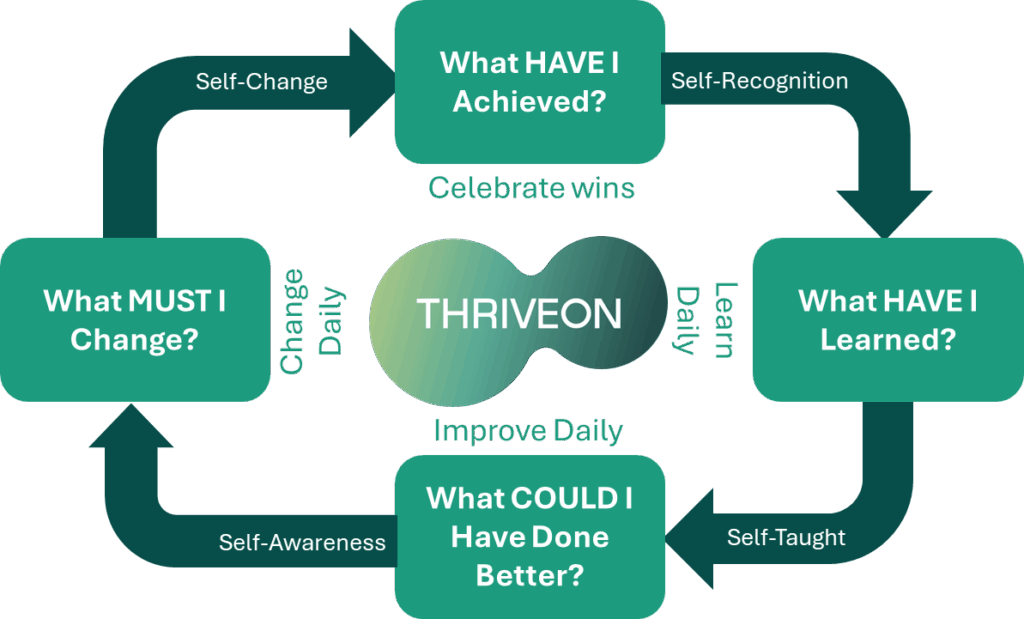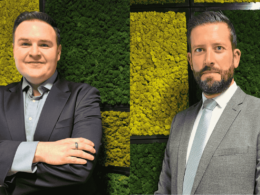In his book The Mirror Never Lies: From Reflection to Prosperity – The Blueprint for Success and Fulfilment, Nationalist Party MP and business leader Ivan Bartolo condenses four decades of experience into a personal-growth framework designed to help readers build intention, resilience and self-knowledge.
When I sat down to interview Ivan Bartolo for The Business Picture Spotlight series, he had just returned from delivering training overseas – something he has spent much of his life doing. His career has taken him from Malta to Canada, Norway, the USA and India, working with teams of all ages and backgrounds.
Yet the theme that followed him through every training room, regardless of culture or context, was always the same: people forget to look at themselves.
What he has observed, over decades of consulting with companies and individuals, is that human beings tend to drift. They build careers, families, routines – all necessary parts of life – but they rarely stop to consider who they are becoming.
Turning the mirror inward
“People are very, very important. In everything we do, the world goes round because of people” he says. “A lot of people, once they finish university or once they go into the world of commerce and work… it feels like they go a bit on an autopilot. They stop thinking about their growth and they fall into a comfort zone.”
It was this realisation, formed slowly, over years of watching professionals disconnect from their own sense of direction, that planted the idea of this book in his head.
Bartolo’s framework begins with four deceptively simple questions.
“While you’re there in front of that mirror, ask yourself, today, what have I achieved? Today, what did I learn? Today, what could I have done better? What must I change?”
When he used to pose these questions to his training participants, the reactions were often identical: Why? What are we measuring?
“They realised they were trying to measure something – achievement, learning, improvement. But you cannot measure unless you have a plan,” he says.
Measuring growth
From there, the concept of a personal growth plan took shape. Just as companies rely on KPIs, Bartolo emphasises the need for Personal Success Metrics (PSMs) that translate life goals into practical, measurable habits.
One of his own examples is the focus area of wellbeing. At the age of 60, with three children and three grandchildren, he speaks openly about wanting to be present for life’s future milestones.
“My purpose is to be around for these moments,” he stresses. “I need to be around. I have a desire to see Jack, who is my eldest grandson, come out of university. I’d love to walk my daughter up the aisle. I don’t have control over certain things… But on the other hand, I have control over my exercise, I have control over my diet, I have control over medical check-ups.”
To this end, his own PSMs include walking 10,000 steps daily, controlling his diet during the week, and reserving alcoholic drinks for weekends. With these in place, the questions he asks himself each evening have real substance. If he has committed to 10,000 steps, the answer becomes a simple yes or no.
How small moments shape a lifetime
The writing of the book, he tells me, was itself cathartic. In his training sessions, he often shows childhood photographs – not for nostalgia’s sake, but to highlight the visible journey from boyhood to adulthood.
“The objective is not to show people how cute I was or how old I’ve become, but to show the journey,” he smiles.
One photo reminds him of huge pasta dinners one of his uncles used to cook, when he was a child. Another shows his early career days, working for British Airways and living off junk food, prompting weight gain that he eventually addressed.
But what about the growth that remains invisible?
“How adaptable am I? How resilient am I? What is my wisdom? What is my knowledge? What is my curiosity for learning? What is all this growth that we don’t actually stop to think about?”
This, he argues, is where most people fall short. And yet it has never been more urgent.
“The world is in its fifth industrial revolution. AI is going to require us to be adaptable. AI is going to require us to be resilient. AI is going to require a lot of change if we want to survive in a commercial world.”
“Celebrate daily. Life is beautiful. Life is great”

Readers who approach his book expecting corporate strategy quickly discover something more personal. Many, he says, have described it as a wake-up call. And he understands why.
“If you don’t recognise yourself, how will anyone else recognise you? That is self-awareness. That is positive self-critique.”
A concept that appears frequently in the book – and in our conversation – is celebration. Not the grand, ceremonial kind, but quiet, daily acknowledgement.
“Celebrate daily. Life is beautiful. Life is great,” he grins.
For Bartolo, celebration reinforces intention. It creates what he calls a ‘daily finish line’, a mental space where progress can be acknowledged, however small. That finish line is then recorded through journaling – a practice that many people resist.
Self-recognition and ‘The Thrive On Method’
However, journaling, in his view, creates a written ‘picture’, the kind you can revisit years later to understand just how far you have come.
“When you go back to that picture in five years from now, you’ll appreciate how much you’ve grown, you’ll appreciate how much you’ve learned,” he says. “Your best is always ahead of you. But your best is ahead of you only if you live with intention.”
Much of Bartolo’s philosophy manifests itself in the ‘Thrive On Method’, the central framework of his book. This method, he believes, helps people cultivate inner wealth: self-recognition, resilience and awareness. In a world reshaped by social media and the pressures of external validation, these capacities matter more than ever, he notes.

The metaphor of growth recurs throughout the book – like trees he saw recently in Madeira. Some trees grew tall and straight; others twisted and angled in unexpected directions.
“We’re all going to grow. We’re all going to keep on going forward in life,” he says. “But are we growing in the right direction?”
Throughout the book, QR codes link to an online platform found at www.thriveon.vip which supports readers with book exercises, self-assessment tools, links to testimonials, blogs, and a link to download the thriveon mobile app.
Living with intention
When I ask him to distil the book’s core message into one idea, he does not hesitate.
“You need to believe that every day is a better day, but your best is always ahead of you… The best is yet to come.”
This, he emphasises, has nothing to do with material wealth. At the end of his life, he says, he will measure success through one very important measure, fulfilment.
The Mirror Never Lies: From Reflection to Prosperity – The Blueprint for Success and Fulfilment may be purchased from Agenda Bookshop as well as amazon.co.uk. It is available as paperback, eBook and audiobook.













